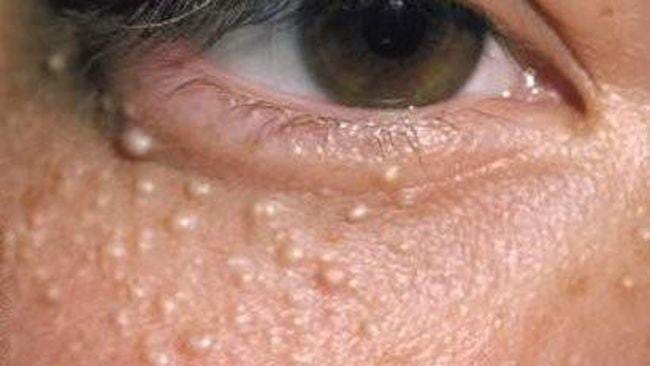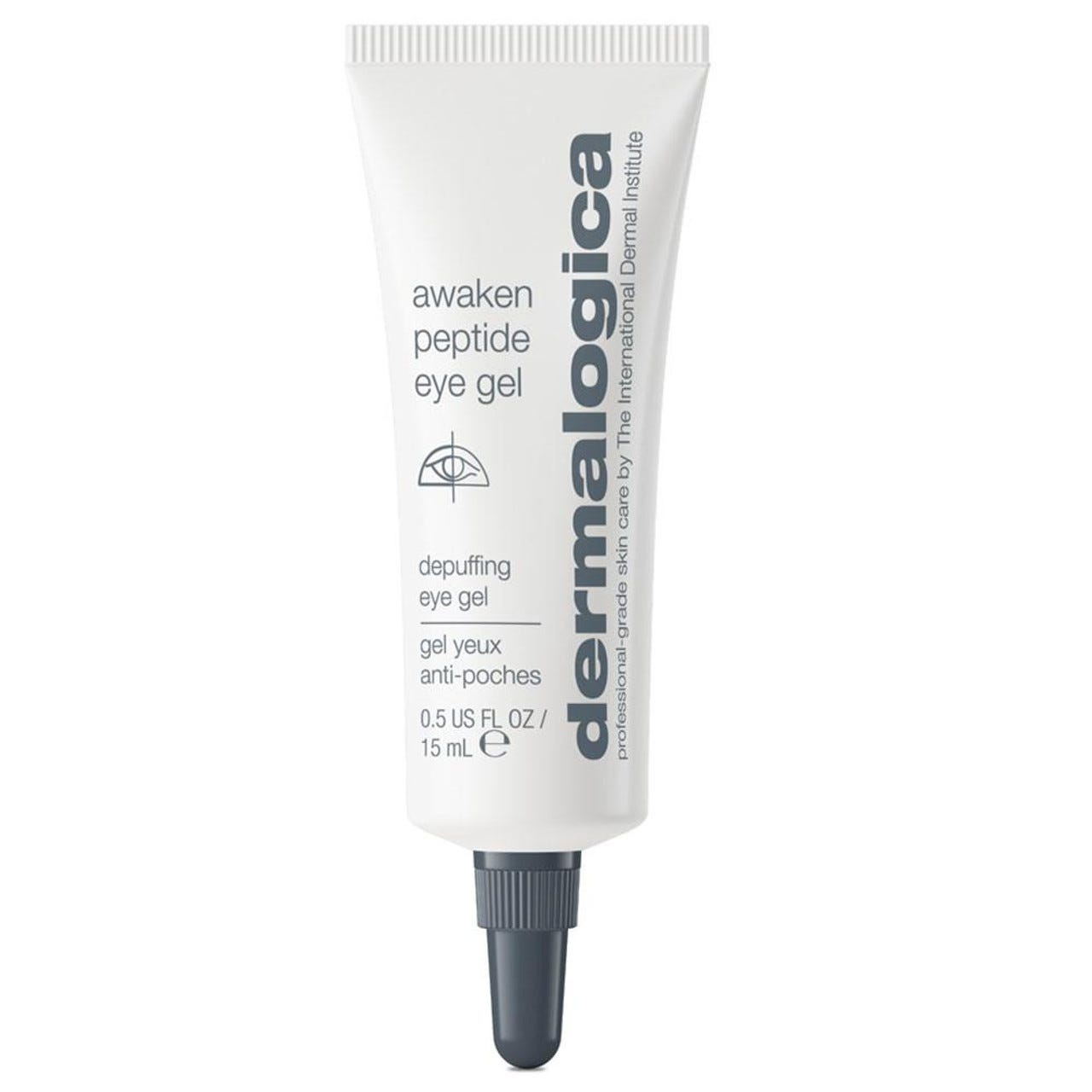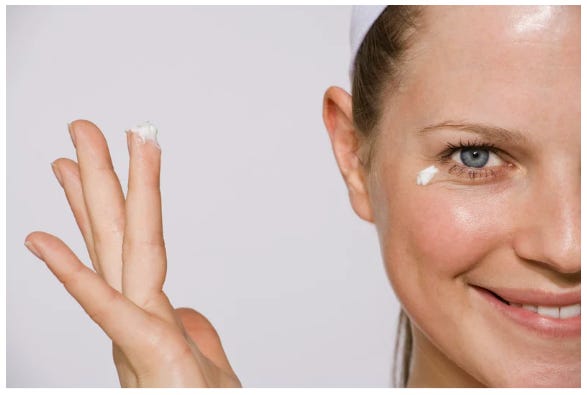"Just use your regular moisturizer around your eyes!"
If you've spent any time in skincare communities, you've probably heard this advice.
And yeah, it's tempting to skip the extra product (and save some money).
But here's the thing - the skin around your eyes is different from the rest of your face.
Think about it: the skin under your eyes is thinner than anywhere else on your face.
It's the first place to show signs of aging, the last place to bounce back from a bad night's sleep, and probably the most sensitive area you're dealing with in your skincare routine.
But do you actually need a separate eye cream? The short answer is: it depends.
Some people can definitely benefit from one, while others might be fine without it.
In this article, I’ll break down exactly what makes eye creams special, what ingredients to look for, and how to tell if you really need one in your routine.
The Science Behind Eye Creams
First, let's talk about why your eye area is so high maintenance.
The skin around your eyes is about half as thick as the skin on the rest of your face.
It also has fewer oil glands, which means less natural moisture.
So no wonder it's usually the first place to show signs of aging!
Common eye area issues include:
Dark circles (thanks, thin skin that shows blood vessels underneath)
Puffiness (blame poor circulation and fluid retention)
Fine lines (because thinner skin creases more easily)
Sensitivity (less natural protection means more reactive skin)
Regular moisturizers aren't always the best solution here.
Why?
Well, they're often too heavy for this delicate area.
Plus, they're not formulated with ingredients that target specific eye concerns.
That rich face cream you love might actually cause milia (those tiny white bumps) around your eyes.

Think of it this way: depending on your skin type, you may not want to use your body lotion on your face, right?
Same concept applies here - different skin needs different care.
Eye Creams vs Regular Moisturizers
What makes eye creams different from your regular face moisturizer? It's all in the formula.
Formula Differences
Eye creams are usually:
More concentrated (a little goes a long way)
Lighter in texture (to prevent milia)
Fragrance-free (less chance of irritation)
Ophthalmologist tested (safe for use around eyes)
Special Ingredients
Eye creams often pack specific ingredients you won't find in regular moisturizers, or use them in different concentrations:
Peptides that help with fine lines and wrinkles
Caffeine to fight puffiness and dark circles
Special blurring agents (like silica and mica) to brighten the area
Film-forming agents that create a smooth base for concealer
Safety First
Regular moisturizers might have ingredients that are fine for your face but too harsh for your eye area.
Eye creams are specifically tested to make sure they won't cause:
Eye irritation
Milia
Stinging or burning
Migration into your eyes
So, while you could just use your face cream around your eyes, it’s not a direct replacement for an eye cream.
Eye creams are literally designed differently - from their texture to how they absorb.
Key Ingredients to Look For
Not all eye creams are created equal.
Here are the ingredients that actually make a difference:
Peptides
These tiny proteins are MVPs in eye creams.
They help boost collagen production, which means fewer fine lines and wrinkles.
You’ll want to look for ingredients like:
Acetyl hexapeptide-8 (helps relax fine lines)
Palmitoyl tripeptide-1 (boosts collagen)
Palmitoyl tetrapeptide-7 (fights puffiness)
Caffeine
Yes, your eyes can benefit from a morning coffee too. Caffeine helps:
Shrink blood vessels (goodbye, dark circles)
Reduce puffiness
Wake up tired-looking eyes
Blurring Agents
These create an instant improvement while other ingredients work long-term:
Silica for a soft-focus effect
Mica to reflect light and brighten
Niacinamide to even out tone
Dimethicone to smooth the area
Hydrators & Nourishing Ingredients
Because the eye area has fewer oil glands, it needs help staying moisturized. These guys are often included in formulation to help with that:
Hyaluronic acid
Glycerin
Ceramides
Squalane
The best eye creams usually combine several of these ingredients. For example, probably my overall favorite eye cream, Dermalogica's Awaken Peptide Eye Gel, has an excellent formula.
Product Recommendations
First off, I should clarify that I love Mirror Skin’s Copper Elixir around my eye area because copper peptides are excellent for treating signs of aging in the eye area.
But since this is an article about eye creams, I’ll give you three recommendations in this section.
Dermalogica Awaken Peptide Eye Gel is my top pick for most people.

This gel formula:
Uses peptides to fight fine lines
Has caffeine to reduce morning puffiness
Feels lightweight but hydrating
Works great under makeup
Comes with a metal applicator that feels amazing
Hero Cosmetics Bright Eyes isn't your typical eye cream, but it's amazing for the following reasons:

Instant brightening effect (I just use it instead of concealer because of the tint, but it may not be ideal for deeper skin tones)
Hydrating the under-eye area
Metal applicator that helps with puffiness
Perfect alternative to concealer on no-makeup days
And the BeYou Caffeine Eye Cream is my go-to during allergy season because it’s:
Super soothing on irritated skin
Great for reducing morning puffiness
Hydrating without being heavy
Absorbs quickly without residue
And, of course, here’s when to skip an eye cream:
If your regular moisturizer doesn't irritate your eye area
If you don't have specific eye-area concerns
If you're happy with how your under-eye area looks
The Truth About Eye Creams
Here's the bottom line: do you absolutely need an eye cream?
No. But can the right one make a difference? Absolutely.
If you're dealing with specific eye area concerns like:
Dark circles that won't quit
Puffiness in the morning
Fine lines starting to show up
Dry, crepey skin around your eyes
Then yes, a targeted eye cream is probably worth adding to your routine. Just remember - eye creams can help, but they're not magic.
They won't completely erase dark circles (blame genetics and your lifestyle for those) or instantly remove wrinkles.
Start with something simple like the BeYou Caffeine Eye Cream if you're just dealing with puffiness, or try Dermalogica's Awaken Peptide Eye Gel if you want to target multiple concerns at once.
And if you're happy with how your eye area looks using just your regular moisturizer?
That's totally fine too.
The best skincare routine is the one that works for your skin.
Cheers,








Great post! What are some solutions to milia under the eyes?